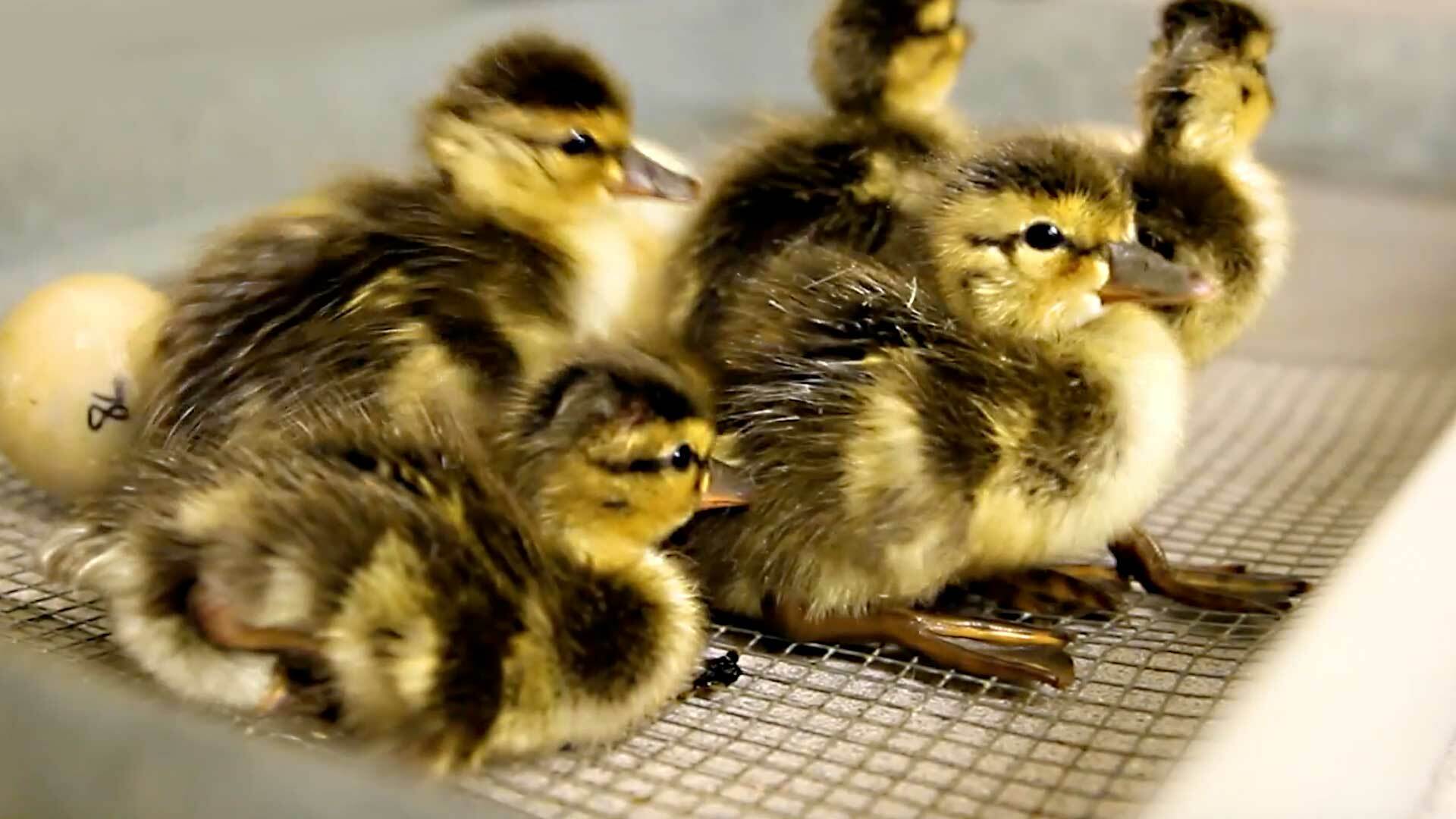
What do organic rice, regenerative farming, and a quack-load of ducks have in common? They're all part of our world here at Lundberg Family Farms. Our farm was founded on a pledge to leave the land better than we found it. And our feathered friends are abso-ducking-lutely included in that.
What the Duck are Ducks Doing in a Rice Field?
Good question. See, at Lundberg Family Farms, we give a duck about things like soil health. So, each winter, after rice harvest is over, we grow cover crops like oats, vetch, and fava beans. These crops are grown specifically to help enrich the soil during the off season. They’re like a “soil superfood,” if you will. Cover crops can also help sequester carbon, reduce weeds, and prevent erosion. They’re ducking awesome. But it just so happens that cover crops also provide the perfect nesting habitat for ducks, where they can stay safe from predators, build nests, and lay eggs. It’s like a luxury resort for ducks (minus the spa treatments).
Ducks & Cover Crops
So, what’s the problem? Well, you know that old saying about making hay while the sun shines? The same applies to rice. Once the weather warms up, it’s time to start our tractors, mow the cover crops, and get that “soil superfood” into the ground so we can prep the fields for rice planting. If the eggs in our fields have already hatched (or if the ducks haven’t even begun to nest yet) everything’s just ducky. But, sometimes, Mother Nature tells us it’s time to plant rice before all those cute little ducklings have waddled off. And if we were to drive our tractor through a field filled with unhatched eggs? Well, they’d be… for lack of a better word… DUCKED.
Lundberg to the Rescue
That’s where our commitment to wildlife preservation and protection takes center stage, with our Duck Egg Rescue Program! With help from our friends at California Waterfowl Association, we strap on our hip waders and search the fields for nests. It’s like a giant Easter egg hunt—and it’s ducking adorable! See for yourself:
Once we collect the eggs (in cartons padded with feathers for safekeeping), we bring them to a permitted hatchery, which operates under a U.S. Fish & Wildlife Service Special Purpose Permit and follows regulations guiding the management of hand-reared wild waterfowl for release. In other words: The eggs get egg-cellent care from vetted eggs-perts. (Sorry, we couldn’t resist!)
Some people say separating eggs and mother hens is pretty ducked up. We get it. Before we established our Duck Egg Rescue Program, we tried to relocate the nests so they could remain with their mamas. But here’s the thing: Often, when a nest is moved, a mother hen won’t reclaim it. Instead, she finds a new place to nest again. So, in this sense, we’re doubling down on increasing duck populations—at the hatchery AND in the wild.
Last comes the really fun part! Once they’re ready, the fuzzy little quackers are released into the wild, where they take to the skies. How do we know? Because before they’re released, our friends at California Waterfowl Association give each duckling a special band with its own number. It’s kind of like a social security number for a duck. That way, if someone finds a duck in the wild, biologists can gather all sorts of data to help them understand migratory patterns. Pretty ducking cool, right?
Ducks Love Water. Duck Nests? Not So Much!
You might be wondering why we don’t work around the nests, right? But it turns out that it’s a “ducked if you do, ducked if you don’t” situation because rice grows in water, and while ducks love water, water would destroy their nests. So why don’t we simply skip planting our rice fields altogether when ducks have nested in them? Well, we need to grow and sell rice to continue providing habitat, growing cover crops, and rescuing duck eggs. In other words: It’s pretty ducking important.
Time to Get Quackin’
Over the years, we’ve saved an estimated 30,000 ducklings… and counting! Some people call it sustainable farming. Others call it regenerative. We call it quacktivism. But really, it’s part of our commitment to taking care of the land AND the creatures who live on it. We’ve even got some of them starring in our commercials!
Balancing Act: Rice Production and Wildlife Preservation
Juggling rice production with conservation and wildlife preservation isn't ducking easy, but we couldn’t imagine doing it any other way. Because at the end of the day, rescuing ducklings isn’t just ducking adorable—it’s also an expression of our love for what we do. It’s all part of our pledge to leave the land better than we found it. Because we're not just farming—we're cultivating a legacy of care. And if we care this much about ducks, imagine how much we care about our rice.

Meet and Greet and Eat at
Lundberg Social Media Links